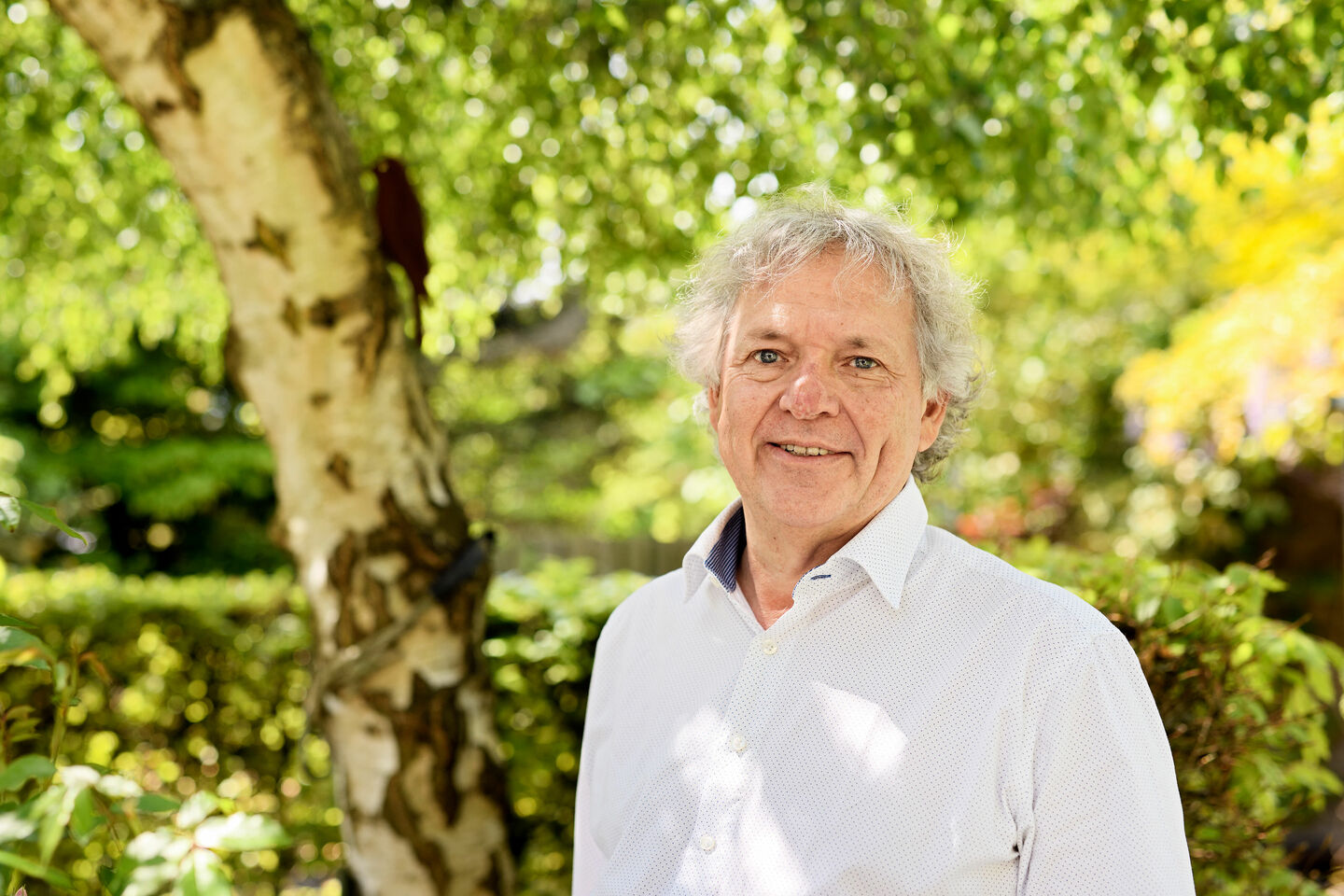
“It feels like taking off a coat”
Dean Lex Lemmens bids his farewell to the Bachelor College
In less than a month, on July the 1st, Lex Lemmens, dean of TU/e’s Bachelor College, will hand over the baton to Ines Lopez Arteaga. He played a crucial role in the creation of this innovative educational concept and continued to work on it for eight years. The pressure that came with the job never bothered him. “But when the time comes to step down, it will feel like taking off a coat,” Lemmens confesses. He will help his successor settle in, and once travelling becomes a possibility again, the camper beckons. At least, if he doesn’t yield to the temptation of another challenging educational position in the meantime.
The reason why TU/e decided in 2011 to develop a new form and approach for its education in the bachelor’s phase was actually a rather mundane one, Lex Lemmens says. “The university feared that some of its programs wouldn’t have enough critical mass anymore due to limited intake numbers. That would have led to a real risk that they might cease to exist. We’re talking about Electrical Engineering, Chemical Engineering and Applied Mathematics. This seems hardly imaginable today, considering the significant growth of our programs during the last eight years.”
The then rector Hans van Duijn seriously worried about this and asked Lemmens to completely reform the university’s bachelor education. Lemmens: “The question was: how do we attract new groups of students, other than just those who are already intrinsically motivated to follow a science program? The answer: immediately show them how they can put the things they learn in our programs into practice after they graduate. The ‘dreaming campaign’ that was developed for this purpose played an important role in conveying that message.”
Three times no
Lemmens says that he was asked for this position because he had roamed around just about the entire university during his academic career, which meant that he wasn’t connected to any one department. “That’s why no one objected to my appointment - although I must admit that I spoke the biblical ‘no’ three times at first.”
Lemmens and the members of the special taskforce that was set up for this purpose had to get to work straight away, because Van Duijn had decided not to postpone the introduction of the Bachelor College until 2013, but to want to start with it in the academic year 2012-2013 already. According to him, there was no time to lose.
“Lex has always been a role model to me”
Paul Koenraad, dean of the Graduate School, says that he greatly admires Lemmens for his tremendous expertise and his ability to bring together the various opinions on education that never cease to exist within TU/e. “When I started as dean, he was a role model to me for the way in which I wanted to perform that task. The Bachelor College truly is his baby, and his clear vision of education always continued to evolve and has now given us challenge-based learning.”
Koenraad says that the ability to analyze complex issues and translate them into a clear vision is among Lemmens’ strengths. “He regularly surprised us with certain things, because he is creative as well.” Koenraad has complete confidence in the collaboration with Lemmens’ successor, Ines Lopez Arteaga. “I know her a little bit better by now, but she will not become a second Lex. There’s no need for that, and I don’t think you can ever find one anyway.”
Lemmens became the standard bearer for this new concept of educational innovation, but of course he didn’t do it all by himself, he says. “I was surrounded by a large group of people who investigated and further developed a wide range of issues in different areas within various working groups. I also have to confess that there was an increased attention to and appreciation for technology courses at high schools in the Netherlands at the time, which worked in our favor. For example, we saw that more and more high school students opted for the two sciences profiles.”
Unique educational model
Lemmens is still extremely proud of the fact that the lecturers and members of the auxiliary staff managed to set up a new and unique educational model in a relatively short period of time. “We offered prospective students something they couldn’t find anywhere else, and they picked up on that. What attracted them in particular was the fact that the Bachelor College gave them several choices. They could always opt for an in-depth program if they wanted, but there were options as well for those students who were more inclined to take on a role as a generalist, manager or entrepreneur.”
Right from the start, TU/e benefited greatly from the Bachelor College. First-year student numbers doubled in a period of eight years, and academic results improved considerably as well. Although it has to be said that the latter was also due in part to the binding study advice and the Bachelor-before-Master rule. The board even had to introduce a ceiling on student numbers for four programs a few years back in order to take away some of the pressure at the departments, and in part also because the new situation led to potential problems concerning a lack of available teaching rooms.
“We were good cop and bad cop”
“That’s a rather modest way of looking at it,” says former rector Hans van Duijn when he hears that Lemmens thinks has was chosen simply because he had no connection to one particular department. “Lex stood head and shoulders above the rest when it came to expertise.
He had looked around internationally to see how at other places the reform of engineering programs had been approached. He had an excellent reputation, people listened to him, and he was a breath of fresh air back then at a university with a culture where many people voice their strong opinions.”
On a personal level they got along very well, Van Duijn says. “We saw each other almost every day, we interacted very well, and share the same sense of humor.” When the program directors needed to be convinced of something, he and Lemmens would sometimes play the roles of good cop and bad cop. Van Duijn: “My opinion would be diametrically opposed to those of the program directors during meetings, but Lex always made sure that we came up with a solution in the end. His diplomatic skills are considerable and of great importance to someone in this position.”
USE
But like much else, the “largest educational reform at TU/e,” as it was once described by rector Van Duijn, didn’t proceed flawlessly either. For a long time, the courses within in the USE trajectory, which stands for User, Society and Entrepreneurial perspective, remained a cause for concern. Lemmens: “Many lecturers were very busy changing their courses from three to five credit courses when the Bachelor College started and didn’t have the time to look into this as well. However, there was time for it at the department of Industrial Engineering & Innovation Sciences, which is why we approached those courses too much from a social perspective.”
The departments were critical, because they felt that the USE courses weren’t attuned to their programs, and they had a difficult time explaining to their students why they should follow these courses. Lemmens promised to take the criticisms seriously and to look into it. He says that much has been improved and that hard work has been done in recent times on the development of the five so-called premium USE learning trajectories, which aim to offer each student something to his or her liking.
“To achieve that, we took a different approach,” Lemmens explains. “We invited lecturers to an inspiration session in the University Club, where they talked to each other about what they liked and what inspired them. People from different disciplines found each other that way, and the first result of that meeting, the learning trajectory Internet of Things, will start in September.” Challenge-based learning (CBL) is a key to this. During a period of seven months, students will complete a full cycle from idea to design, technical development and a pitch for investors. The learning trajectory Physics of Social Systems, developed by the department of Applied Physics, will also start in September, and a redesigned version of an existing learning USE trajectory, Decisions under Risk, is in the making.
“Praise for his approachability”
In his capacity as chairman of the University Council’s Bachelor College committee, Erik van Heijst had contact with Lemmens a great many times between mid-2017 and the end of 2018. “His objectiveness and his approachability are his strongest assets as far as I’m concerned. Each time we broached a problem, he had two answers: either he was familiar with the problem already and he was busy solving it, or he wasn’t but would immediately tackle it.”
This doesn’t mean that he and his committee always agreed with the dean, Van Heijst says. “But a consensus on a factual basis was always found in the end. There were also enough times when we laughed together a lot. That always happened during meetings with Lex. I wish his successor every success in achieving the high standard Lex managed to reach during those eight years.”
Future
Challenge-based learning is to play an increasingly important role within the Bachelor College and the Graduate School in the coming years. Lemmens: “We want to offer each individual student a case they need to solve within each discipline, and the key to it is that they have to figure out by themselves what kind of knowledge they need for that. This takes place in the form of blended learning. We offer part of the course material online, and they need to make their own choices in that, but they also need to get to work on it on campus. This was also the idea behind the TU/e innovationSpace. Lectures will still be a part of the concept in the future, but students will know exactly why they’re following these specific courses.”
Lemmens says there’s no reason to fear that the quality of the university’s programs will diminish as the student’s freedom of choice increases. “Everyone still needs to graduate with a degree, and awarding students with a degree is a guarantee that we tested that person’s knowledge and skills. However, out teaching approach will be much more in line with what the market demands. In the future, industry will attach more and more value to portfolios, which contain someone’s specialisms.”
“Thanks on behalf of future engineers”
“Education researcher Ruth Graham finds the change achieved by the Bachelor College, which she evaluated, very impressive,” says Isabelle Reymen, scientific director of TU/e innovation Space. “Graham compared the Bachelor College to many other educational reforms in engineering throughout the world. This reform affects each course, each student and each lecturer. Lex took the lead in this nine years ago.”
It offers opportunities for a next step, according to Reymen, “namely the one towards challenge-based learning, with more attention to interdisciplinary teaching and the integration of theory and practice, which will allow universities to train the engineers of the future.”
She is grateful for the role Lemmens played in this, and for the fact that he was an early advocate of setting up TU/e innovation Space. “On behalf of future engineers, their employers and other social stakeholders, I would like to thank him for all the initiatives he undertook as dean. And for his sound advice and perseverance.”
Experiments
During the next four years, TU/e will experiment with CBL, in small groups at first, but the experiments will be continuously scaled up, Lemmens says. The first E³-pilot, which stands for Eindhoven Engineering Education, is scheduled for next academic year with a group of some ninety students. Lemmens: “CBL has to become the Bachelor College’s essential educational concept, and this will be one of most important tasks for my successor Ines Lopez Arteaga to take up. A special taskforce was set up well, which will support her in this. A concept and a plan for its implementation need to be ready around the year 2024.” Lemmens thinks that the current crisis and the near-standstill of all activities on campus will somewhat delay the developments in this area.
Hard work is currently being done on the further development of the Bachelor College in other areas as well, such as employability, for example. This includes learning soft skills, such as the ability to successfully communicate and work as part of a team. This needs to become an integral part within the program, according to Lemmens. “It will make students more aware of the connection between learning these kinds of skills, which industry asks for as well, and the rest of their Bachelor,” Lemmens says. “When CBL becomes implemented more and more in the future, students will learn these kinds of soft skills in an even more natural manner.”
“Always looking for a compromise”
Rector Frank Baaijens refers to Lemmens as the “Godfather of the Bachelor College.” But Lemmens is not the kind of person who makes you an offer you can’t refuse. On the contrary, Baaijens praises him for his willingness to always look for a compromise. “He has a very clear vision of the direction he wants to take the Bachelor College, and he has the charm to make it all happen.”
Looking back, Baaijens still praises Lemmens and former rector Hans van Duijn for the speed and energy with which they managed to set up the Bachelor College at the time. “Those early days are illustrative of Lex’s passion and drive. When I work with him, it’s always about substance, even though we laugh a great deal.”
The positive appraisal by the NVAO within the context of the Institutional Audit Quality Assurance (ITK), which was recently definitively confirmed, is in no small part thanks to Lemmens, according to Baaijens. “He really earned the right to think of that as his crowning achievement after eight years. With his expertise and knowledge, we approached that in a considerably more comfortable way than first time around in 2013.”
Pressure
In short, after serving two four-year terms as dean, Lemmens will leave behind a considerable legacy in September. But he is the first to realize that developments in this field will never cease, and his successor will have more work waiting for her. Logical question: did he ever wrestle with the pressure from within the institution to meet with the many expectations? Because TU/e doesn’t exactly suffer from a lack of headstrong people with an opinion on education. Lemmens’ answer is short: “That pressure has never really bothered me in all those years. But when the time comes to step down on July the 1st and when I say goodbye in August, it will feel like taking off a coat.”
Once the situation allows it again, he and his wife want to take their camper out on the road. But he still keeps his options open, with a smile: “That’s if no one asks me for an interesting position in the field of education in the meantime.”
On Friday August 28 in the Senaatszaal in the Auditorium starting from 16:00 hrs. the official farewell of Lex Lemmens will take place. Due to the coronacrisis and all the measurements that come with it, at this moment it's hard to say how this farewell will be organized precisely. More information about it will follow as soon as possible.

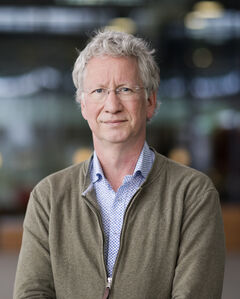
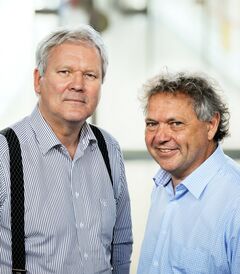
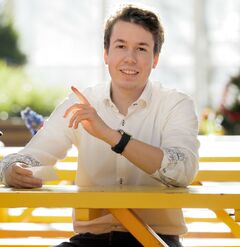
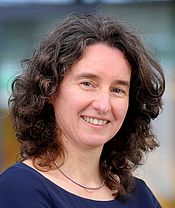

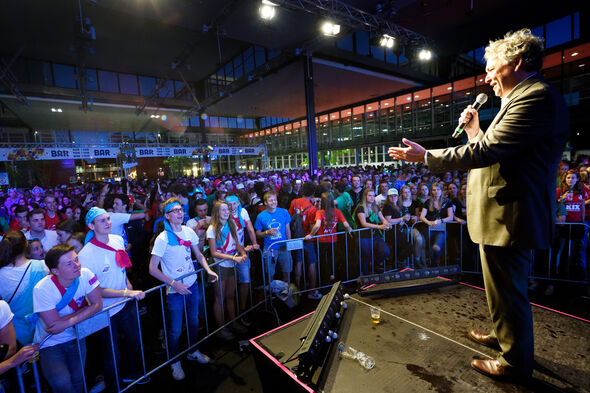
Discussion